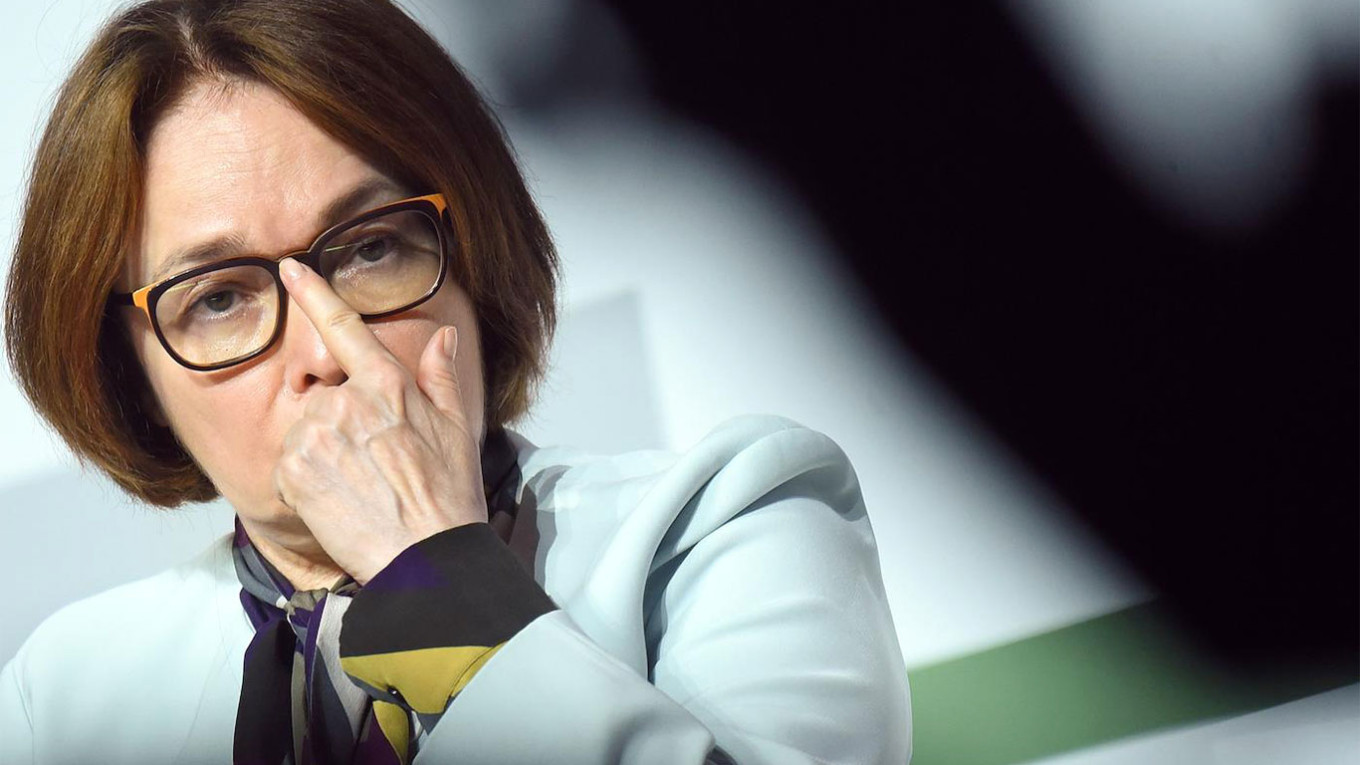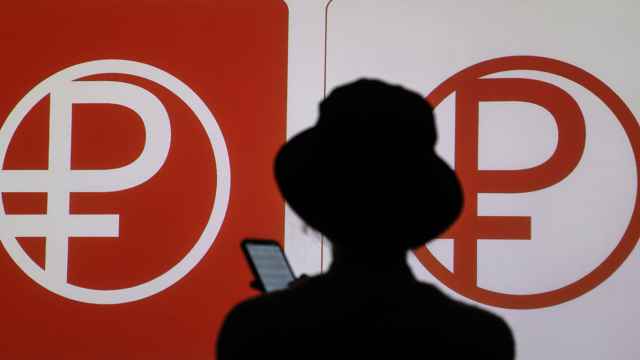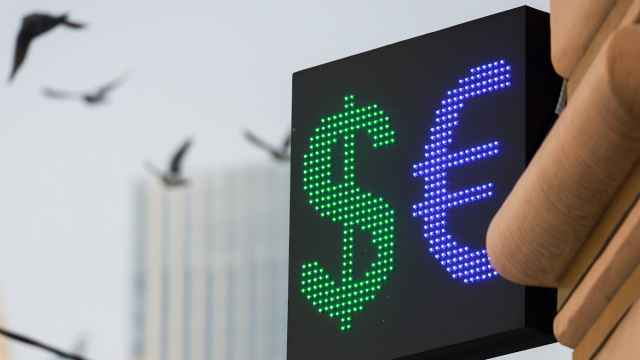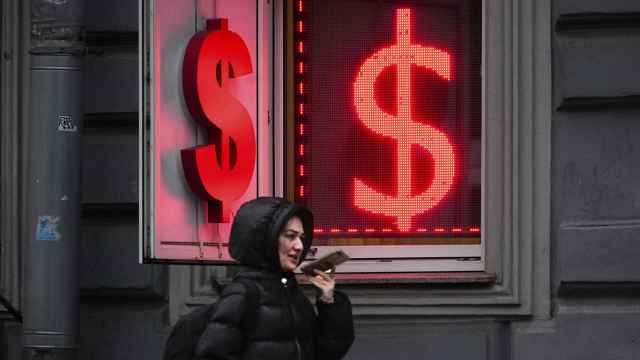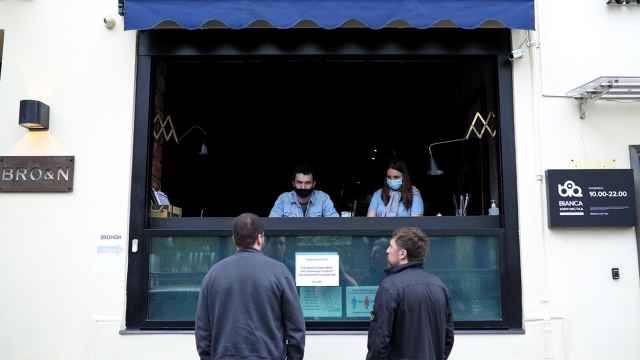Russia’s Central Bank hiked interest rates from 8.5% to 12% on Tuesday in an emergency meeting after the ruble slid past 100 against the U.S. dollar the day before.
“The decision is aimed at limiting price stability risks,” the Bank said in a statement.
The ruble gained strongly ahead of the decision, rising by more than 2% to around 95 against the U.S. dollar, before paring gains to fall back below 98 after the rate hike was announced, Moscow Exchange data showed.
It was the first extraordinary meeting of the Bank’s board of directors since Feb. 28, 2022, when the regulator raised interest rates to 20% in the wake of Moscow’s invasion of Ukraine just days earlier.
A devaluation in the Russian currency has gathered pace in recent weeks, triggering concerns it could set off an inflationary spiral and panic in Russia’s domestic financial markets.
In its statement, the Bank said surging demand at home — which includes a rapid increase in state spending on the war in Ukraine — was causing the economy to overheat.
“Steady growth in domestic demand surpassing the capacity to expand output amplifies the underlying inflationary pressure and has an impact on the ruble’s exchange rate dynamics,” it said.
Ahead of the move, analysts at Alfa Bank said a key rate of around 12% could help stabilize the currency.
“Perhaps with the help of a rate increase, the Central Bank expects to slow down domestic demand and reduce imports. But this will only have an indirect effect on the ruble exchange rate,” they wrote in a research note.
A fall in Russia’s export sales, a recovery in imports and surging government spending to help fund the invasion of Ukraine have all contributed to a weakening ruble and rising inflation, analysts say. The Central Bank itself has been warning of inflationary pressures for almost a year, following Russia's mobilization of some 300,000 reservists in September.
Inflation is currently running at 4.4%, the bank said in its statement — above its official 4% target — and is set to accelerate toward 6.5% by the end of this year, according to official forecasts. Other measures of price rises, including core inflation and seasonally-adjusted inflation were running above 7%, the central bank said on Tuesday.
“The pass-through of the ruble’s depreciation to prices is gaining momentum and inflation expectations are on the rise,” it said in a statement, adding there were “substantial” risks that inflation would not be brought back down to 4% until after 2024.
Tuesday’s hike came after Maxim Oreshkin, an aide to Russian President Vladimir Putin, publicly called for higher borrowing costs to address the ruble’s woes, in a rare criticism of the regulator’s policy from the Kremlin.
Central Bank governor Elvira Nabiullina, previously an economic advisor to Putin, is seen in Moscow as an astute operator who has been instrumental in helping Russia’s economy weather a barrage of Western sanctions and the economic fallout of the war.
Analysts say the falling ruble is both a blessing and a curse for the Kremlin.
A weaker currency increases Russia’s revenue from energy sales, which are priced in dollars, helping offset lost income from lower exports. The price in rubles for a barrel of Russia’s Urals oil has more than doubled since the start of the year.
However, it could also trigger financial panic and inflation at home, by pushing up prices for goods that use imported parts and even for some domestically-produced agricultural products, where the price is dictated by international markets.
Last week a state TV presenter, Vladimir Solovyov, slammed the Central Bank on a broadcast of his online show, calling on Nabiullina to halt the slide in the ruble ahead of the upcoming presidential election, scheduled for March 2024. Putin is certain to win the race, which independent observers and rights groups say will be neither free nor fair, but the Kremlin would prefer not to have Russians head to the polls against the backdrop of an economic crisis.
Russia’s economy has become increasingly militarized in the 18 months since Russia invaded Ukraine, with a massive ramp-up in arms production and payments to soldiers offsetting a sharp drop in retail sales, foreign investment and energy exports.
A Message from The Moscow Times:
Dear readers,
We are facing unprecedented challenges. Russia's Prosecutor General's Office has designated The Moscow Times as an "undesirable" organization, criminalizing our work and putting our staff at risk of prosecution. This follows our earlier unjust labeling as a "foreign agent."
These actions are direct attempts to silence independent journalism in Russia. The authorities claim our work "discredits the decisions of the Russian leadership." We see things differently: we strive to provide accurate, unbiased reporting on Russia.
We, the journalists of The Moscow Times, refuse to be silenced. But to continue our work, we need your help.
Your support, no matter how small, makes a world of difference. If you can, please support us monthly starting from just $2. It's quick to set up, and every contribution makes a significant impact.
By supporting The Moscow Times, you're defending open, independent journalism in the face of repression. Thank you for standing with us.
Remind me later.



